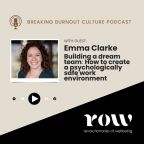New research shows that more light at night raises the risk of mental health conditions such as anxiety, bipolar disorder, PTSD severity, and self-harm. In the largest study ever conducted on light exposure and mental health, involving nearly 87,000 participants, participants who experienced high levels of night-time light had a 30% higher risk of depression, while those with substantial daytime light exposure reduced their depression risk by 20%. The study observed similar trends for self-harm, psychosis, bipolar disorder, generalised anxiety disorder, and PTSD.
Conversely, the research highlighted that greater exposure to daylight can serve as a non-drug method to lower the risk of psychosis.
The authors say that while the findings show a substantial impact, by recognising the strong connection between light exposure and mental health, people can make small changes to their lives to protect their wellbeing. They note it’s important to get plenty of light during the day and ensure darkness at night.
Reference:
Monash University. (2023, November 1). Largest-ever study on light exposure proves its impact on mental health. Monash University. https://www.monash.edu/news/articles/largest-ever-study-on-light-exposure-proves-its-impact-on-mental-health









